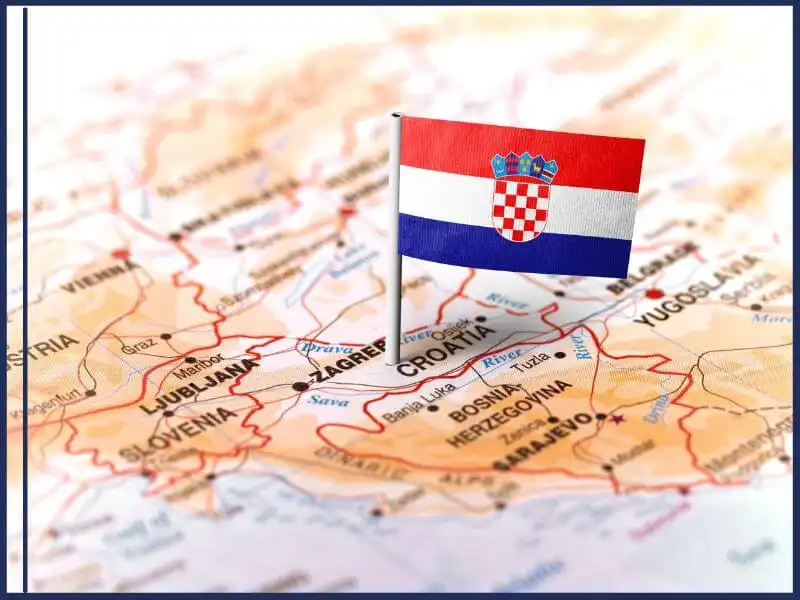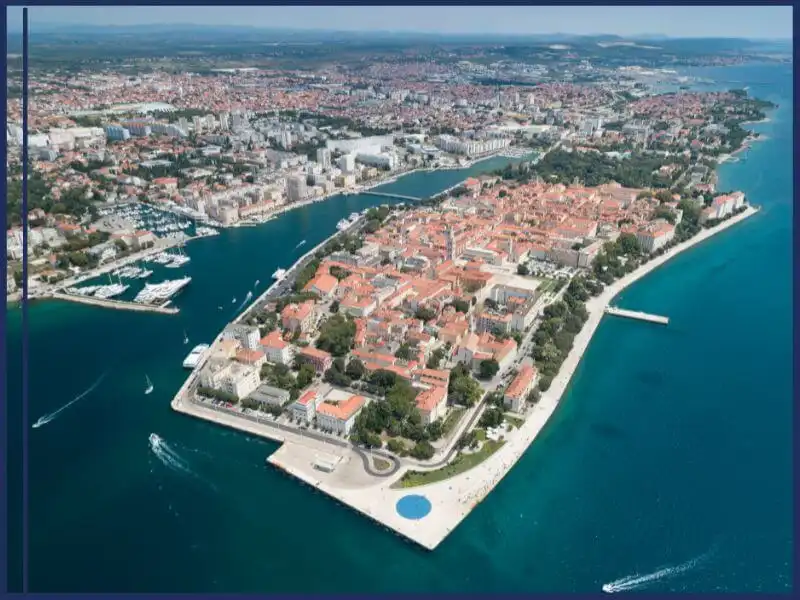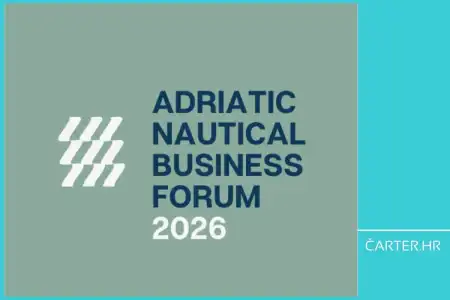
- 04.02.2025.
- News, Regulations, Finances
Are we on the verge of a major economic turning point? In his new article, Ivica Žuro reveals how Croatia's entry into the OECD in 2026 will bring an influx of foreign capital and investments in tourism, banking, and infrastructure. Find out who the biggest players are and whether our “old” problems will disappear - will Croatia manage to seize the opportunity, or will it remain trapped in seasonal tourism and bureaucratic constraints?
For a long time now, there have been warnings about the need to create conditions for investments after 2027 when EU funds dry up, and one possible course of action is attracting foreign capital starting in early 2026.
At that time, Croatia is expected to join the OECD, which includes countries for whom this region is very attractive for investments.
What is the OECD - legal changes and benefits
Just for reference, the Organisation for Economic Co-operation and Development (OECD) is an international economic association and a kind of exclusive club that does not accept just anyone, as not even all EU member states are also OECD members. Among the former transitional countries, the OECD includes, for example, the Czech Republic, Slovenia, Poland, Hungary, Slovakia, and the Baltic states.
Alongside the accession process, amendments to the Law on Ownership and Permanent Rights are currently in parliamentary procedure, affecting the citizens of existing OECD member states. Specifically, once these amendments are approved, residents of this club of developed nations will have the same rights as Croatian and EU citizens, and naturally, vice versa.
They will no longer have the status of third-country nationals, which currently often means a visa requirement and considerable hassle when starting a business, not just in terms of requiring 10 times the usual capital for establishing a limited liability company (d.o.o.) but also the requirement to employ at least three permanent Croatian employees.
It is already difficult for a local to find three employees willing to work without quitting at the first opportunity, let alone for someone coming from abroad.
And what benefits can Croatia expect from joining the OECD?

What does Croatia gain?
Primarily, trade with growing economies should increase, along with the continuation of political and economic integration into the most developed part of the world.
Croatia will have the opportunity to participate in shaping global policies and standards, which not only enhances the country's reputation but also strengthens investor confidence. Likewise, it will be easier to prevent the outflow of funds that should remain in the country.
Historically, countries that have become members of the OECD have recorded improvements in their credit ratings, which facilitates access to financing on international markets and lowers borrowing costs for both the state and the private sector.
Besides the US, Canada, and the UK, important OECD members include Turkey, Israel, South Korea, Australia, Mexico, Chile, and Colombia. These are countries with either strong national economies or young populations that drive their economic development.
Ok, so what or whom can we ultimately expect?

Turkish capital is coming - hotel investments, marinas, and banking
First and foremost, an increased focus from Turkish investors, as their citizens will be in a position to acquire property and start businesses much more easily than before. If visas were a barrier for anyone – they were for them.
This large country with 80 million inhabitants, characterized by a young population – with an average age of 34 – has been among the Top 20 global economies for years due to its diversified economic structure, strong export-oriented industry, and numerous trade agreements across Europe and Asia.
For years, it has been exporting vehicles worth no less than 30 billion US dollars annually.
Montenegro, along with Bosnia and Herzegovina, has played a leading role in Turkish investments, and now, thanks to facilitated business operations, Croatia is set to take that place. This trend is already noticeable through increased contact with Turkish businesspeople, as those who arrive early will profit the most from those who realize the opportunity later.
Expect the arrival of Turkish hotel chains interested in renovating existing and constructing new accommodation and hotel capacities, investments in marinas, logistics, and distribution activities, as well as a special focus on finance, expanding the existing capital flow from Turkey.
The segment of aesthetic surgery is also noteworthy, given that in recent years, a significant number of citizens have been undergoing hair transplants, liposuctions, lip enhancements, and other procedures in Sarajevo at those same medical institutions.
Since Bosnia and Herzegovina has a rule that makes it very difficult to employ foreign medical professionals as long as domestic ones are available – no matter their quality – Turkish clinics are seriously considering the easier conditions for entry and employment in Croatia.
Dogus has long since started investing in Northern Dalmatia, shifting its focus from marinas to the hotel sector through the luxurious Hyatt Regency hotel, which has added a special touch of luxury to the Zadar coast. Kent Bank is also owned by the prestigious Suzer Group – the exclusive distributor of KFC and Coca-Cola in Turkey.
It would not be surprising if competition arrives in the form of Ziraat Bank, which has branches east of our country – back in 1996, it was the first foreign bank in Bosnia and Herzegovina, and for over a decade, it has been operating in Montenegro, primarily serving the needs of several hundred Turkish entrepreneurs.

The number of tourists is declining, what’s next?
Turkey is a major competitor to Croatia in tourism, especially in the nautical charter sector. Besides investing in domestic companies, there is great potential in cooperation and the exchange of good practices, particularly in preventing bad ones. In recent years, "Lijepa Naša" has faced criticism regarding the lack of quality infrastructure. A logical move would be to improve this infrastructure to maintain competitiveness, and in this, Turkey’s experience with its strong and modern infrastructure can be of great help.
Croatia has also received criticism regarding seasonality, but the nautical charter sector cannot solve this issue on its own.
And since we are already talking about something that involves both the term "season" and competition, it is worth saying more about the largest outbound tourist market, which is also Croatia's biggest export partner – Germany, whose economy is suffering the consequences of years of misguided decisions.
Tourists from the leading EU economy recorded 4% fewer arrivals and 6% fewer overnight stays in 2024 compared to the previous year. A similar trend was observed among tourists from the Czech Republic and Italy... However, since tourists from Germany make up 21% of all visitors, it is significant to note that in 2024, the number of German arrivals was nearly 150,000 fewer than the previous year, with overnight stays down by 1.3 million.
No matter how rudimentary these metrics may seem, they say everything – if people did not come and did not spend, there is no need to analyze advanced indicators.
And as for the Germans – although we did not force them into poor decisions, if they fear the future and are unwilling to spend, and if they are surrounded on all sides by the word Recession on their screens, we can stand on our heads, but they will not come.
It is also not insignificant that German tourism stakeholders, including the media, have been actively working to keep those who want to travel within their own country.
Do you notice the difference compared to our approach, where a significant portion of our media, in the race for more clicks, attacks and criticizes both what should and should not be criticized in tourism?
We are globally unique in this – champions in photographing receipts along waterfronts and Christmas markets and complaining about how everything is expensive.
On the other hand, you will not come across a situation where Italian newspapers or portals criticize the cafés around the Vatican for the high price of an ice cream scoop or an espresso, arguing that it would be "Christian" to allow a fellow Catholic to refresh himself more cheaply or enjoy a dessert at a lower price.
Market economies do not tolerate schizophrenia – Croatia is no exception.
Let’s go back to the fundamental question: what to do if key markets are declining?
How to maintain competitiveness in tourism?
By no means should we give up on the big markets, but we must definitely intensify efforts on others.
This means easing visa requirements for those with spending potential and, in general, targeting growing markets.
Comparative arrival data shows the following:
- In 2023, approximately 36,000 tourists from Japan visited, while a year later, 53,000 citizens of the Land of the Rising Sun arrived.
- Brazilian interest in Croatia is growing – from 59,000 arrivals in 2023, they jumped to 77,000 a year later.
- In 2023, 711,000 tourists arrived from the US – in 2024, this number increased to 776,000.
- The British followed a similar trend – from 763,000 to 832,000 in the same period.
- Poles are returning in greater numbers – from 1,084,000 in 2023 to 1,166,000 in 2024.
- As well as the second-largest group, Slovenians, who with 1,719,000 arrivals last year accounted for 10% of the market, thanks to an increase of 57,000 arrivals.
Numbers are exact, and anyone who wants to read them properly – everything is clear.

Categories of trends
- News
- Sale
- Marketing
- SEO
- Web design
- Social media
- Technology
- Regulations
- Management
- Education
- Finances
- User experience
Newsletter
Sign up for the newsletter and receive the latest trends and tips straight to your inbox




